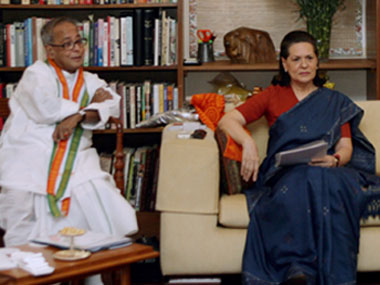If there is a single theme running through this year’s faltering economy, it is this: the business of trying to correct all wrongs has got us into an economic tailspin, with growth tapering off and inflation far from doing so.
Taken together, the UPA’s social spending thrust (and benign neglect of economic reforms) amount to a scorched-earth policy.
Officially, it is all about inclusive growth and correcting historical wrongs to the disadvantaged. But the net effect of these policies will be to leave a fiscal and economic mess that no successor government will be able to handle easily. If Rahul Gandhi actually wins the elections in 2014, he will have a time-bomb on his hands.
The only thing that’s gone right for India this year is the monsoon. The Indian Meteorological Department predicted with considerable aplomb in June that the monsoon would be sub-normal. Thankfully, the prediction went wrong. The IMD now has the unenviable record of seven wrong forecasts out of 10.
But while the Met got egg on its face, our farmers got bountiful precipitation. We have not only had exceedingly good rainfall equal to 101 percent of the long period average, but also good spatial spreads. So, a bumper kharif is likely.
[caption id=“attachment_98312” align=“alignleft” width=“380” caption=“The UPA has run out of ideas and is pursuing policies with the single-objective of winning the next election.Reuters”]  [/caption]
But every other signal is turning from amber to red, thanks to mistimed and often misdirected efforts to correct wrongs.
The fiscal wrongs, created by excessive spending, excess borrowing, and failure to rein in oil subsidies, has had to be righted by a tougher-than-needed monetary policy of rising interest rates. The economy has already hit a speedbreaker. The GDP growth target has been brought down from 9 percent around budget-time to less than 8 percent now. The year will probably end well below 8 percent. Inflation is close to double-digits (9.78 percent), and the Index of Industrial Production was down to 3.3 percent in July.
To correct the fiscal wrong, Finance Minister Pranab Mukherjee is stamping on spending - but largely in the capital outlays area - which is making things worse. When government fails to spend on things like infrastructure, the slowdown can only accelerate as business incomes are crimped. Mukherjee should cut wasteful expenditure, not infrastructure and capital spending.
To correct the current account deficit - the gap between the country’s external earnings and expenses - the Reserve Bank is letting the rupee go weak in the knees. (But it is also true that it does not have enough ammo to just sell dollars and allow the rupee to rise.) This policy will have the side-effect of making imported inflation worse. Even when crude prices fall abroad, they don’t fall at home.
As for social policies, the less said the better. They are all inflationary and business-unfriendly.
The wrongs done to tribals in the past are now sought to be remedied by the repeal of the Mines and Minerals (Development and Regulation) Act and the compulsory sharing of 26 percent of profits with tribals and others displaced by new mines. The mining companies expect to take a hit of Rs 15,000 crore due to this.
The upshot: coal, cement, steel and aluminium prices will be raised when the Mines Bill is legislated in the winter session of parliament. This means power and infrastructure costs will also rise. This effectively means widespread inflation, as costlier power, oil and infrastructure mean every other cost has to rise. So forget about taming inflation.
The draft Land Acquisition Bill - again intended to correct past wrongs to farmers who were expropriated in the name of promoting public projects - will push up the cost of real estate, manufacturing, and just about everything once again. The Bill seeks to give sellers twice the market price for land in urban areas and four times the market price in rural areas. Since land is the main cost in realty projects, middle class home buyers can kiss goodbye to dreams of owning a house even in distant suburbs.
The Food Security Bill , primarily intended to ensure that no one goes hungry in India, by making rice available at Rs 3 and wheat at Rs 2 a kg, will cost over Rs 1,00,000 crore in food subsidies - thus busting the budget and pressuring inflation. To procure so much food for the scheme, minimum support prices will keep rising faster than inflation, and the free market for grains will be starved of supplies. Can this lead to anything but even more inflation?
If every single effort to correct wrongs is leading to higher costs, how is the government going to put the economy back on rails?
The only answer to this puzzle is the possibility that the UPA has run out of ideas and is pursuing policies with the single-objective of winning the next election.
However, these policies will surely bankrupt the government by 2014. So is it planning a scorched earth policy from which no successor government can hope to escape? Or does it anyway expect to lose the next election, and so doesn’t care?


)
)
)
)
)
)
)
)
)



